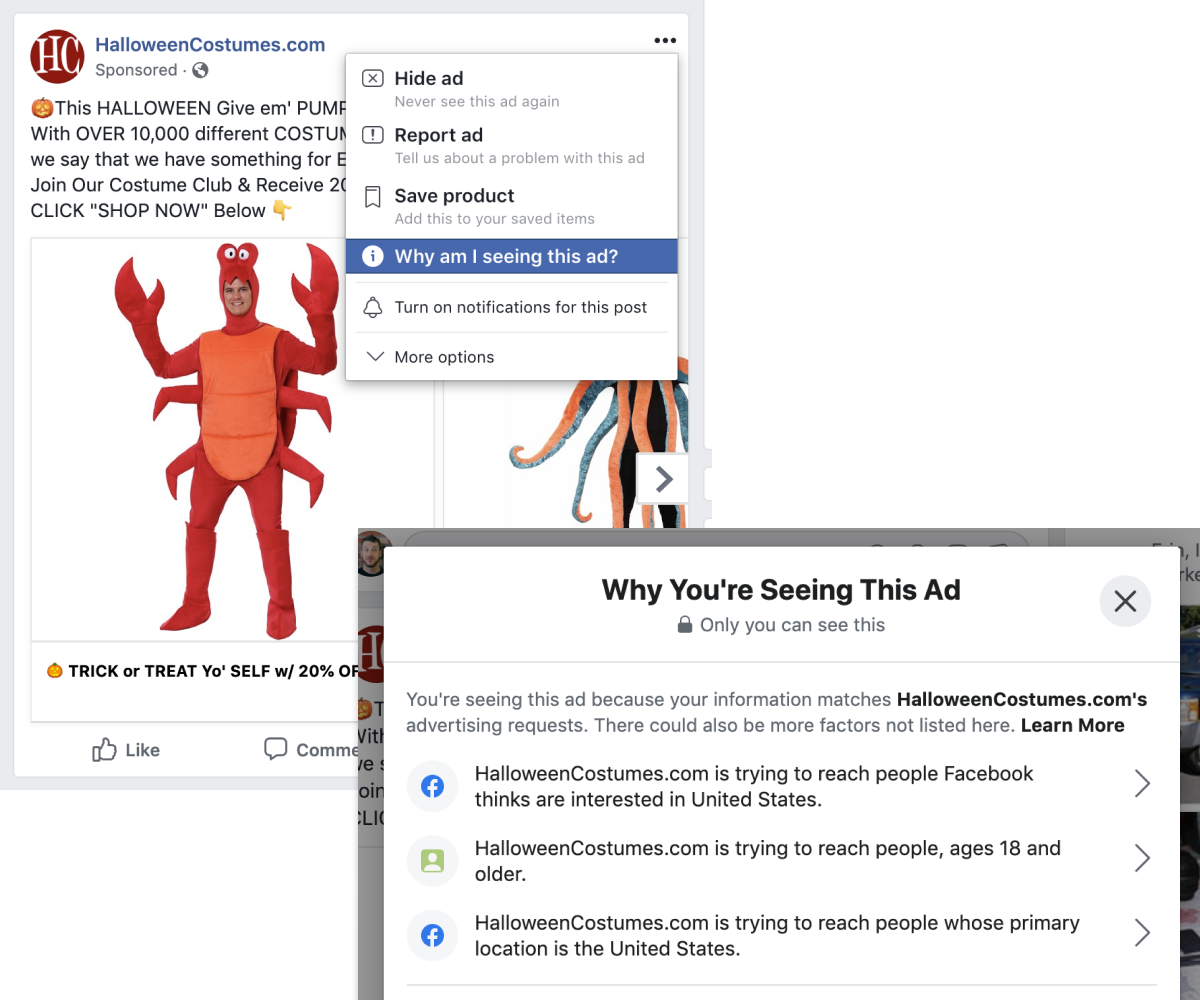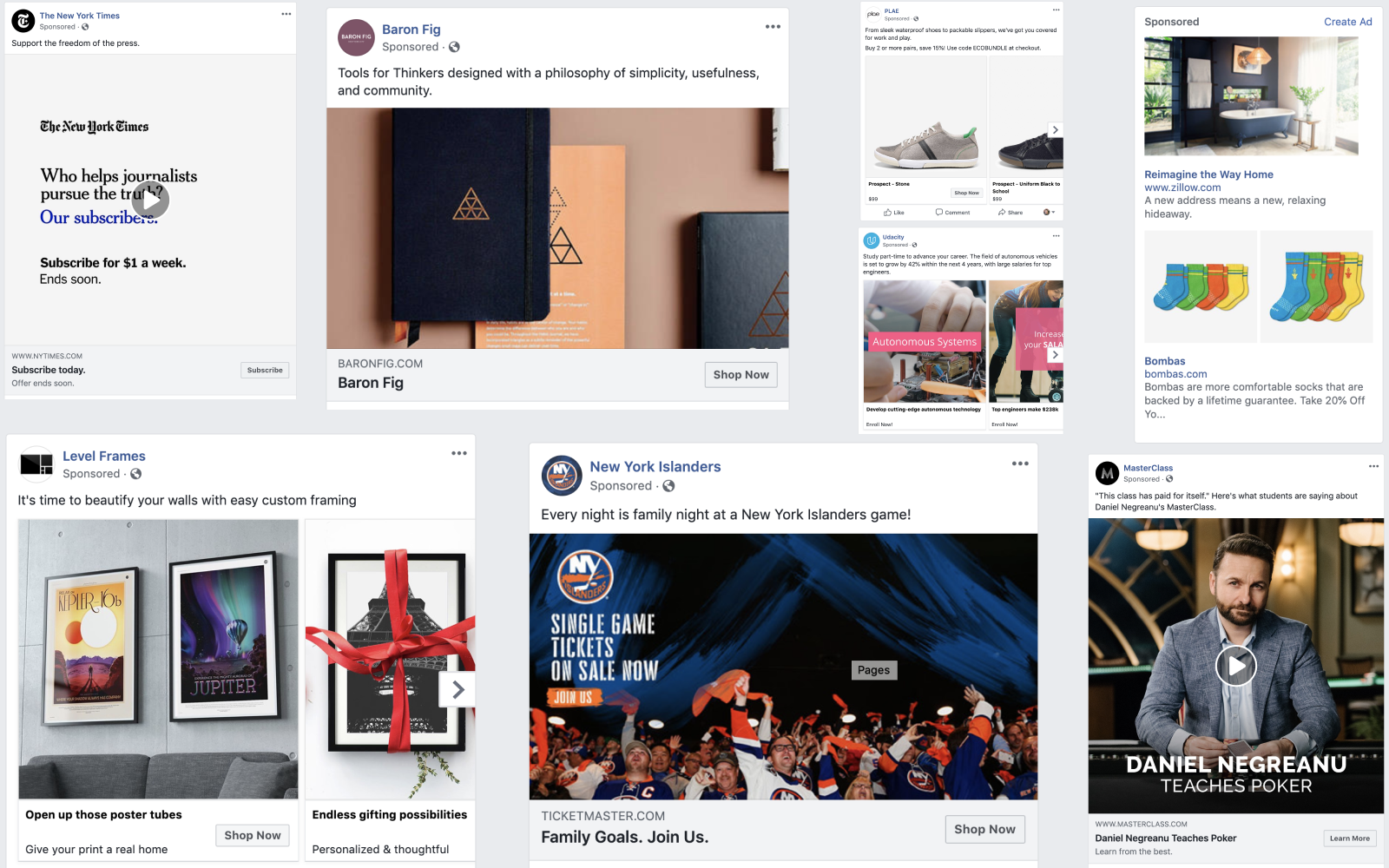Occult Ads
Superstition and the industrial programmatic ad complex
Ads take a psychographic toll on us. They confuse, interrupt and interrogate us. And the social contract for advertising is shifting dramatically - in a short span the default mental model of “ads are defined by the channel” has been inverted to the default of “ads are defined by user targeting”.
In short ads have become personal mirrors. But at what cost?
Programmatic advertising, Cambridge Analytica and the lived experience of Instagram reveal to normal end users the underlying machinery at work. You would have to be blind not to spot the connection between clicking on a watch ad and then seeing a million watch ads (as I document in my post blood in the feed)
Obfuscated Meaning
When you see a digital ad - it’s fair to ask “why was I specifically shown this ad?” or, to take it one step further: “which parts of this ad were made specifically for me?”
But there’s a lot of mysticism left, and most platforms provide almost zero visibility into the underlying mechanisms at work.
Yes, some platforms let you ask “why am I seeing this ad” to provide a pretense of transparency but the results are laughably meaningless:

Implied Logic
Sometimes when I see a specific ad - for example this one:

It’s obvious and clear why I’m seeing it. I visited bonobos.com recently.
But what about something like this:

Am I seeing this because:
- I visited the website of Cazadores tequila? (I haven’t)
- I have clicked an ad for tacos or tequila (possible, but I don’t recall doing so)
- I’ve been identified as a spirits drinker (likely)
- I’m a recovering alcoholic (not true)
- I’ve been algorithmicaly targeted as pre-alcoholic (how would we know?)
My point is - even as a sophisticated digital media professional who knows more than most I don’t know exactly why this ad is being shown to me. Or, who else it’s being shown to.
The Stressful Mirror
So, we live in a world where the ads presented to us are personalized and rational. There’s an obvious simple narrative between visiting a watch website and seeing watch ads.
Increasingly therefore we can look at the feed of ads shown to us as being a mirror to our own wants and needs.
This creates a stressful environment where our brains are constantly scanning the environment for categories to apply to ourselves and constantly creating narratives of pre-crimes for every single ad we see.
- Watch ad. Should I buy a watch?
- Tax prep ad. Is it tax season?
- Vodka ad. Do they think I’m an alcoholic?
- Opioid addiction recover ad. Will I become a drug addict one day?
- Pregnancy ad. Am I pregnant?
If you could scroll through an endless feed of my personal ads what would you learn about me?
Here’s a collage of the latest FB ads I scrolled through:

Where do we place our superstition? In astrology or the industrial programmatic ad complex? Which is a better mirror of our personality?
Algorithms are predatory. They hunt for conditions. There’s blood in the feed. Every ad is a pre-crime, perfectly tailored to my base needs and desires. The algorithms taste it and they’re thirsty.
June 27, 2025
Google is Grounded and Needs to Learn How to Soar
March 21, 2025
September 3, 2024
This post was written by Tom Critchlow - blogger and independent consultant. Subscribe to join my occassional newsletter: